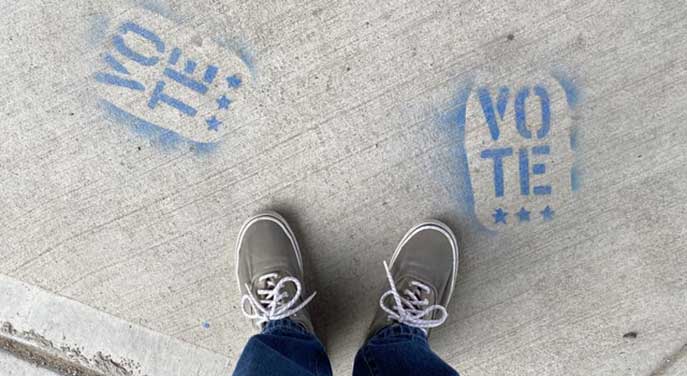 I was on a CTV panel when the Speech from the Throne was read out. This part wasn’t a surprise, but I was surprised the Liberals were doubling down on it:
I was on a CTV panel when the Speech from the Throne was read out. This part wasn’t a surprise, but I was surprised the Liberals were doubling down on it:
There are 10 reasons I can think of, off the top of my head no less, why they are wrong to ram this through, as they seem intent on doing. Here they are:
- The government has no specific mandate for any specific change. They need to go and get one. Four sentences on page eight of a glossy campaign document that was likely read by only a few hundred Canadians isn’t sufficient.
- A change – whether to ranked ballots, or proportional representation, mandatory voting, online voting, or whatever – like this is very big. Any government which wishes to make a change to the way our democracy actually functions needs to be acting (and seen to be acting) in a way that is quintessentially democratic. Refusing to listen to critics isn’t being democratic.
- The likely changes seem to be weighted in favour of the incumbent Liberal government. That’s wrong. It renders the whole thing illegitimate from the start, and possibly illegal.
- It’s being rushed. A wholesale and undefined revision of voting laws by 2017? Is any group of people clamouring for that much change, that fast? Is it possible to revise approximately 150 years of voting rules in about 15 months? Maybe – but if you have a solution to a problem, you need to persuade the people (who are the bosses, after all) that they have a problem that is worth solving.
- Several provinces, including Ontario during an election in which I was involved, have sought a mandate to change election rules. Every one of them went down to defeat. The federal government needs to pay heed to that – but they’re not.
- It’ll be challenged in court, and possibly hung up for years. In particular, it’ll be noted under section three of the Charter – the document, note well, that was birthed by the current Prime Minister’s father – no government is permitted to override “the right to vote.” What does that mean? Well, our highest court in Figueroa [1 SCR 912, 2003 SCC 37] decreed: “In a democracy, sovereign power resides in the people as a whole and each citizen must have a genuine opportunity to take part in the governance of the country through participation in the selection of elected representatives.” The Supremes are likely to be sympathetic to an argument that an ill-defined, rammed-through gutting of election laws doesn’t give the people “a genuine opportunity to take part.”
- It is politically unwise. When Stephen Harper tried to ram through changes to election financing laws, ones that he too had made passing reference to in the just-held election campaign, Liberals rightly were incensed – and they very nearly defeated Harper’s government for trying to rig the rules in its favour. The changes being suggested by Trudeau’s government are far more fundamental – they go to the very heart of our democracy itself. That’s more important than financing of political parties.
- Proportional representation, in countries which practice it, leads to instability. Majorities become rare, and continual election cycles become the norm. Simultaneously, fringe groups – neo-Nazis and the like – start to win seats, and acquire legitimacy as a result.
- Ranked ballots – which the Liberals likely favour, because it favours them – is also problematic. Does a ranked system truly reflect a voter’s voting preferences? (Probably not.) Doesn’t it result in more voting errors? (It does.) Does lower turnout happen? (Usually.) Doesn’t it produce lots of run-offs, which paradoxically leads back to the very system that the government is seeking to change in the first place? (Um, yes. Yes it does.)
- It’s our democracy, not a particular political party’s. It isn’t perfect, but it has been at the centre of collective efforts to produce a near-perfect nation. Mess with it at your own risk, Mr. Trudeau.
Warren Kinsella is a Canadian journalist, political adviser and commentator.
The views, opinions and positions expressed by columnists and contributors are the author’s alone. They do not inherently or expressly reflect the views, opinions and/or positions of our publication.


